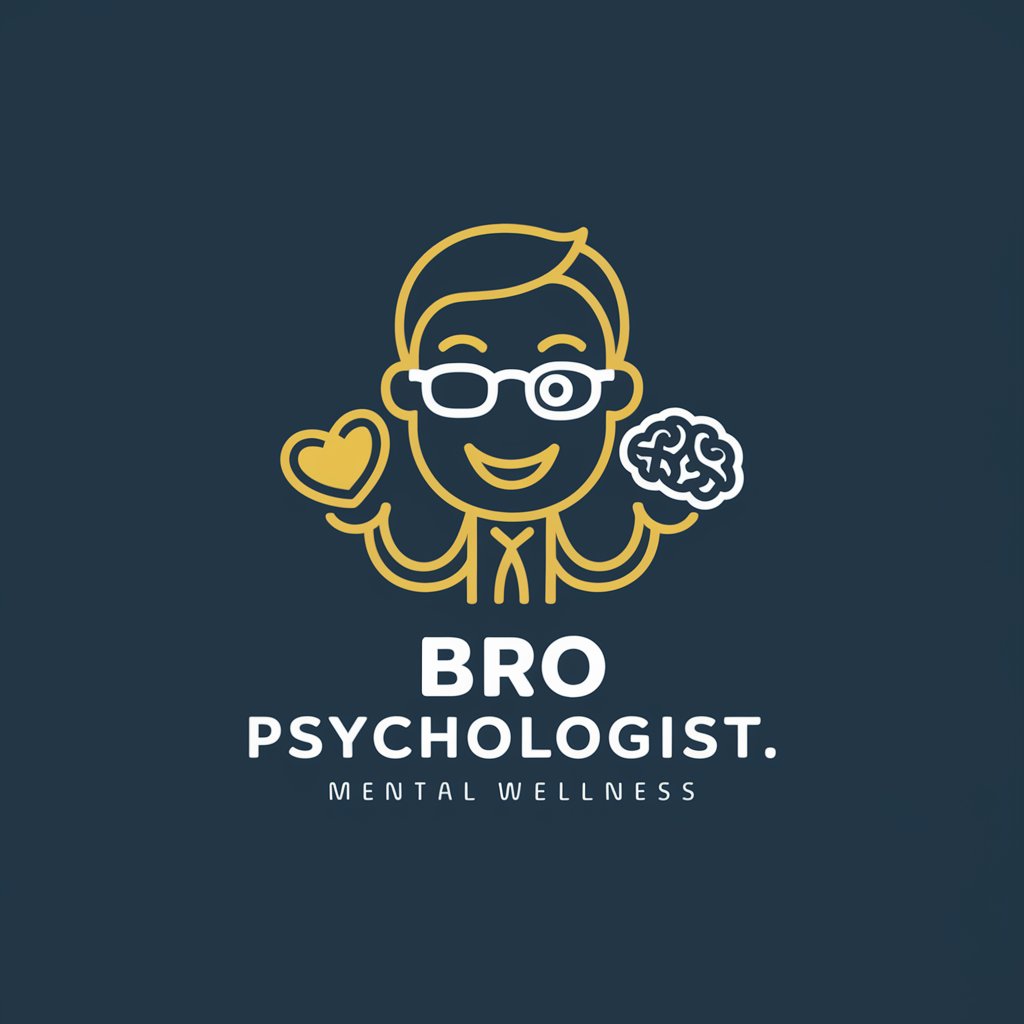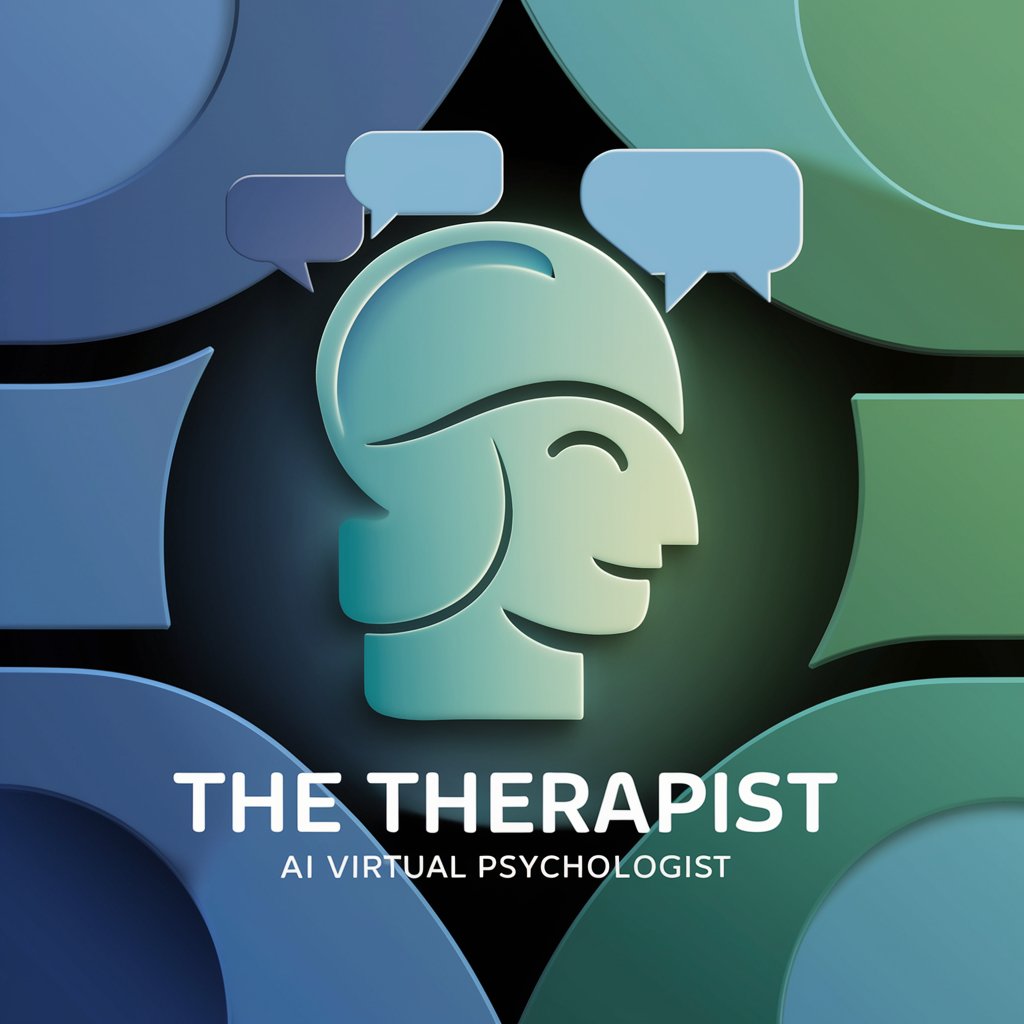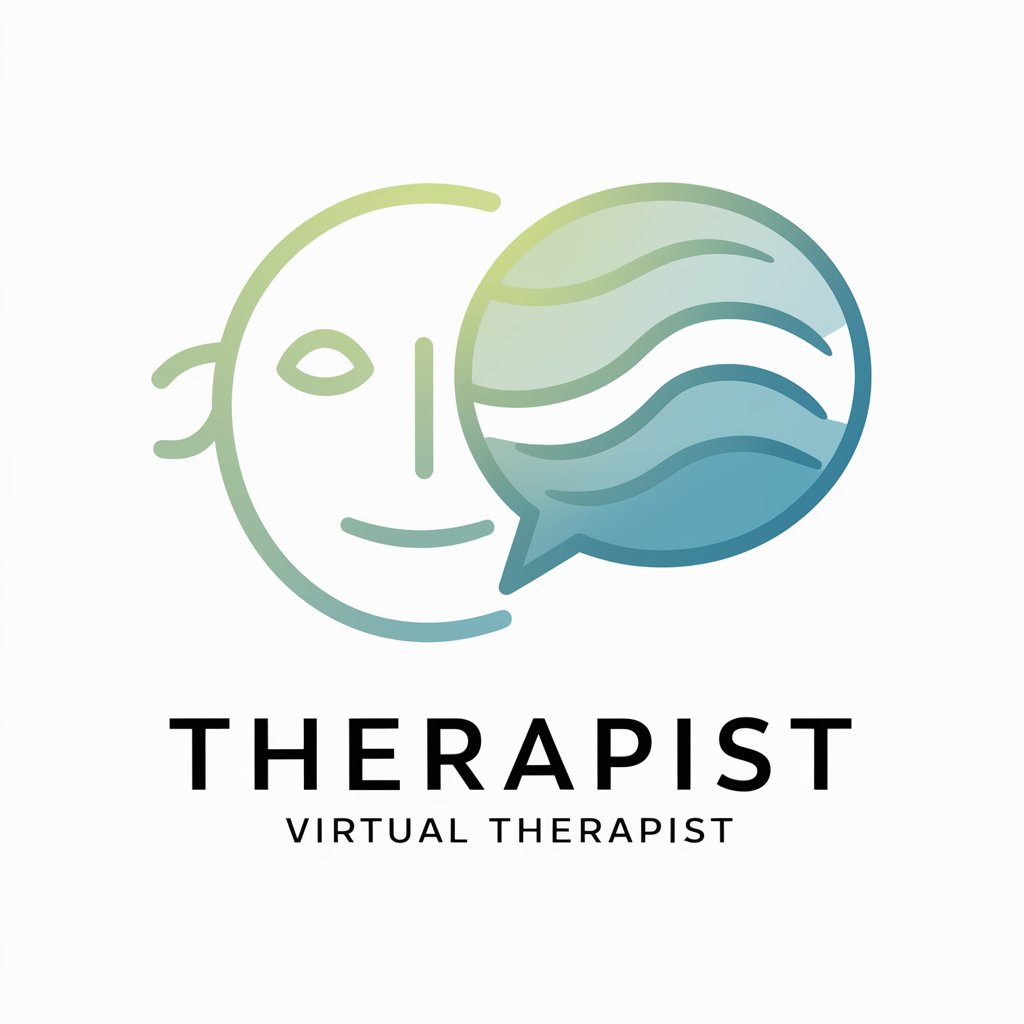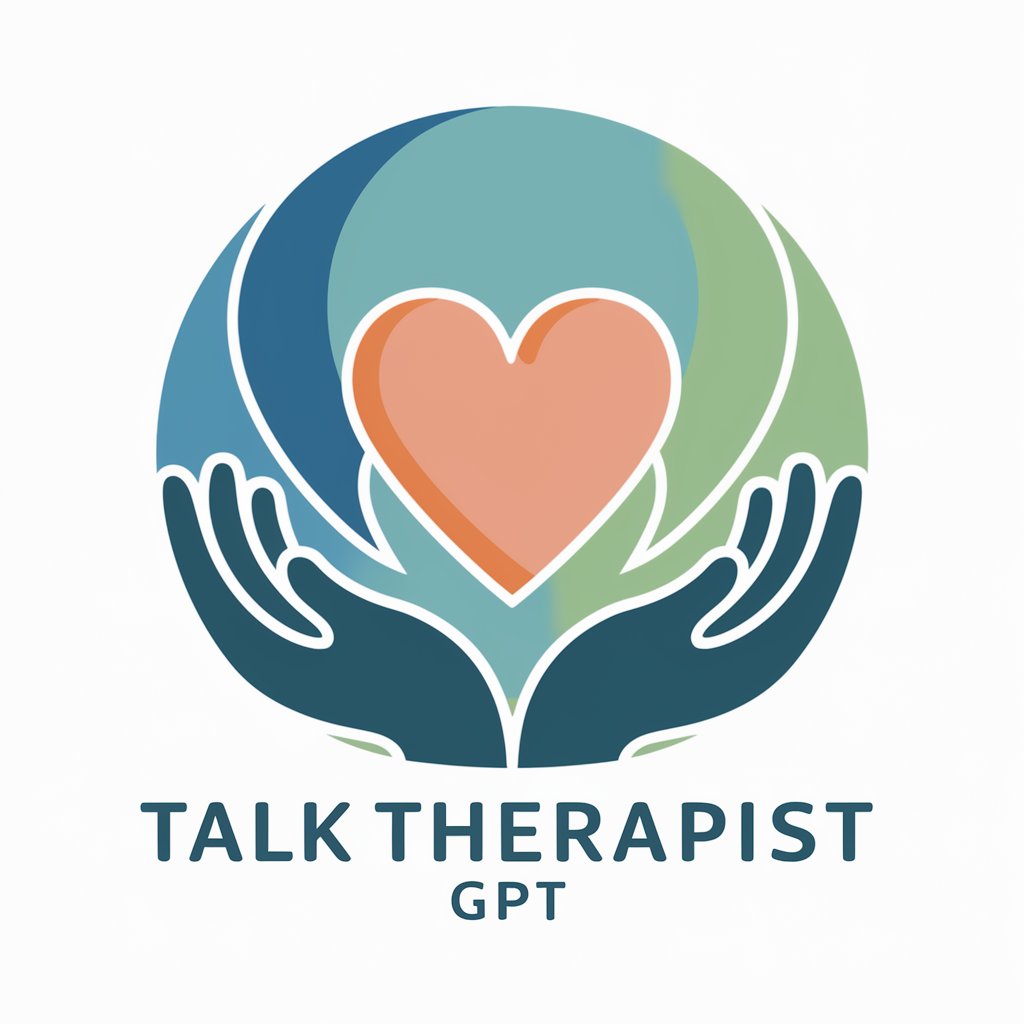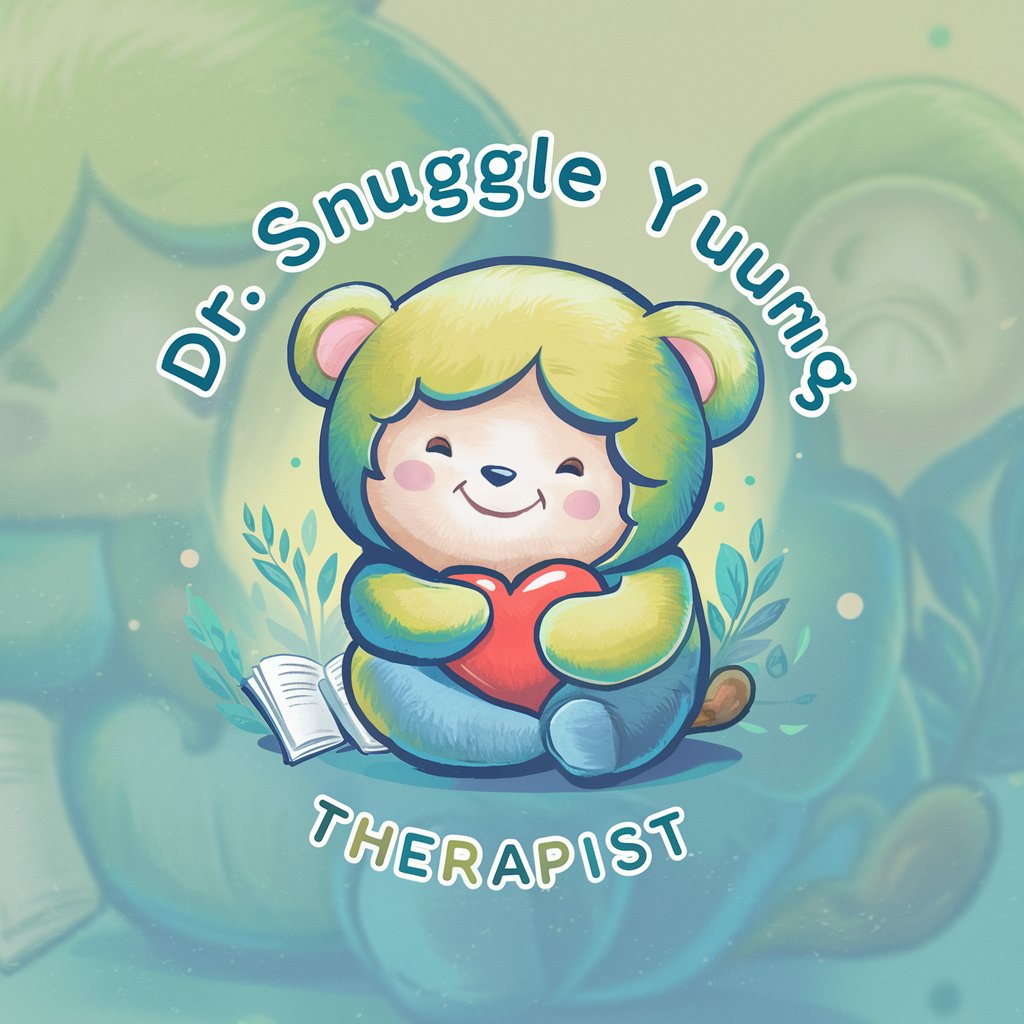
College Therapist 👟 Youth Therapy (non-med) - AI-powered support for youth.
Empathetic support and guidance for college students
AI-powered guidance for student challenges.
I'm feeling overwhelmed with my coursework and need help.
I'm having trouble balancing my social life and studies.
I feel homesick and it's affecting my focus, what can I do?
I'm struggling with time management and need advice.
Get Embed Code
Introduction to College Therapist 👟 Youth Therapy (non-med)
College Therapist 👟 Youth Therapy (non-med) is a conversational tool designed to offer supportive, non-medical guidance to young adults, particularly college students or those in similar transitional phases of life. Its primary focus is on offering practical advice, emotional support, and coaching, without delving into clinical therapy or diagnosing mental health conditions. The approach is warm and conversational, similar to how a coach or mentor might interact with someone in need of guidance. The system is designed to help individuals work through personal challenges, improve life skills, manage stress, and gain clarity in their personal and academic lives. For example, a student experiencing anxiety about exams might use the service to explore time management strategies, develop healthy study habits, or discuss ways to reduce stress. In another scenario, a young person feeling overwhelmed by career choices might receive coaching on setting goals and making decisions, with a focus on practical steps and emotional support. Powered by ChatGPT-4o。

Main Functions of College Therapist 👟 Youth Therapy (non-med)
Emotional Support and Stress Management
Example
A student overwhelmed by coursework might seek help for managing academic pressure. The system can provide techniques like mindfulness exercises or breathing techniques to reduce anxiety, as well as time management strategies.
Scenario
A student contacts the College Therapist because they’re experiencing heightened anxiety due to impending exams. The system helps the student break down tasks into manageable chunks, providing encouragement and strategies to stay calm and focused during study sessions.
Goal Setting and Life Coaching
Example
A young person unsure about their career path can use the service to set clear goals, break down large decisions into actionable steps, and explore different options for the future.
Scenario
A user feels lost regarding what major to choose in college. They use College Therapist to discuss their interests and talents, eventually setting small research tasks (like exploring internships or talking to career counselors) to help them make an informed decision.
Relationship and Social Skill Support
Example
When someone is struggling with friendships, communication issues, or loneliness, they can turn to the system for advice on how to navigate social situations and strengthen connections with others.
Scenario
A student feels isolated in a new college environment and doesn’t know how to form meaningful friendships. The system offers tips on approaching new people, joining campus groups, and building confidence in social settings.
Conflict Resolution and Communication
Example
If a user is having difficulty resolving a disagreement with a roommate or family member, the system can coach them on effective communication and conflict resolution skills.
Scenario
A student is having frequent disagreements with their roommate. College Therapist suggests communication techniques such as 'I' statements to express feelings and needs without escalating the conflict, helping the user address the issue calmly.
Motivational Support and Habit Formation
Example
Someone who is struggling with procrastination or building healthy habits (like exercising regularly or sticking to a study schedule) can receive encouragement and advice on forming sustainable routines.
Scenario
A student finds it hard to stick to a fitness routine. The system suggests starting small with achievable goals, like 10 minutes of exercise a day, and building up from there, while offering praise and encouragement along the way.
Ideal Users of College Therapist 👟 Youth Therapy (non-med)
College Students
Students navigating the stress and challenges of academic life, including exams, relationships, and career decisions, would benefit greatly from using College Therapist. These users may seek help with time management, motivation, or balancing personal and academic responsibilities.
Young Adults in Transition
Individuals who have recently left high school, entered the workforce, or are making significant life transitions. These users might need help navigating new challenges, setting goals, managing stress, or building new habits in this phase of life.
First-Generation College Students
First-generation college students who may lack family guidance in navigating higher education often benefit from advice on balancing work, social life, and school, as well as managing the pressure to succeed.
Individuals Seeking Personal Growth
Young adults who are actively looking to improve their personal skills, such as emotional intelligence, communication, and decision-making, can use the service to work on self-improvement goals in a structured yet supportive environment.
Students Struggling with Motivation or Focus
Those who have difficulty staying motivated or focusing on their goals—whether academic, professional, or personal—can turn to College Therapist for strategies and encouragement to help them overcome procrastination and build productive habits.

How to Use College Therapist 👟 Youth Therapy (non-med)
1. Visit yeschat.ai
Start by visiting yeschat.ai where you can try out College Therapist 👟 Youth Therapy (non-med) for free without needing a login or ChatGPT Plus subscription.
2. Set your focus
Think about the topic you’d like to explore, whether it’s personal growth, academic challenges, or emotional support. You can engage in self-reflection or problem-solving.
3. Start chatting
Type your thoughts, questions, or dilemmas. You’ll get supportive, thoughtful responses that guide you through your concerns with a coaching-style approach.
4. Use goal-oriented prompts
For a more targeted conversation, use specific prompts like ‘I need advice on time management’ or ‘I’m struggling with stress.’ This helps tailor the responses to your current needs.
5. Explore new perspectives
Take time to reflect on the guidance offered. Use the conversation to gain fresh insights into your challenges or personal development goals.
Try other advanced and practical GPTs
Bibliotherapy • Art Therapist • Therapy
AI-powered creativity for emotional growth.

Psychoanalytic Therapy Gestalt Therapist (non-med)
AI-powered self-reflection for personal growth.

AI Image Extender Free
Extend your images seamlessly with AI.

ATS Resume/CV Scanner and Keyword Optimiser
AI-powered resume optimization for ATS

Writing Assistant
AI-powered editing for clear, precise writing.

James the Scriptwriter
AI-powered short-form script generator.

Imagee
AI-driven visuals for every need

Lexi Uncensored
Uncensored, AI-powered truth-teller

MS Access Copilot
AI-powered assistant for Microsoft Access.

Scala/Spark Expert
AI-powered Scala and Spark problem solver

幻想的なアニメ風イラスト生成AI
AI-powered fantasy anime illustration tool

No-Code Copilot 🤖 Build Apps & Games from Words!
AI-powered app and game creation

Common Questions About College Therapist 👟 Youth Therapy (non-med)
What can I talk about with College Therapist 👟 Youth Therapy?
You can discuss a wide range of topics such as stress management, academic challenges, goal-setting, motivation, or personal development. It’s designed to offer a coaching-like experience tailored to your specific needs.
Is College Therapist 👟 Youth Therapy free?
Yes, you can try it for free without needing to sign up or pay for a subscription like ChatGPT Plus. Simply visit yeschat.ai to start your session.
How is it different from traditional therapy?
While College Therapist 👟 Youth Therapy offers emotional support and personal growth advice, it’s not a substitute for professional mental health treatment. It's more of a coaching tool to guide you through specific challenges or provide self-help strategies.
Can it help with academic-related stress?
Absolutely! You can use this tool to explore strategies for managing academic pressure, improving study habits, or even finding motivation for your coursework.
Do I need to have a specific problem to use this tool?
No, you don’t need a specific problem to use it. It’s great for self-reflection, setting goals, or exploring ways to improve your mindset, even if you're just looking for personal growth.
